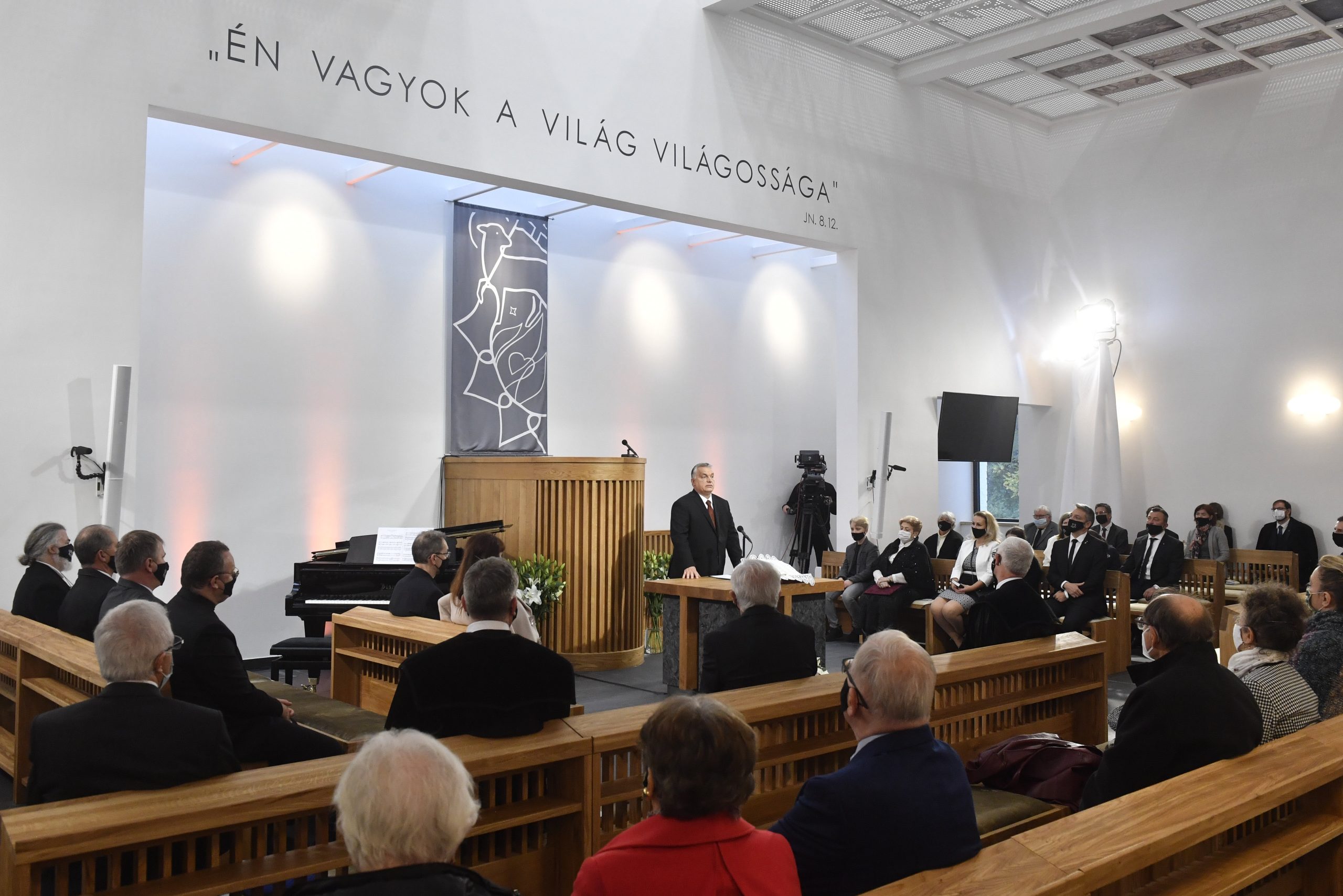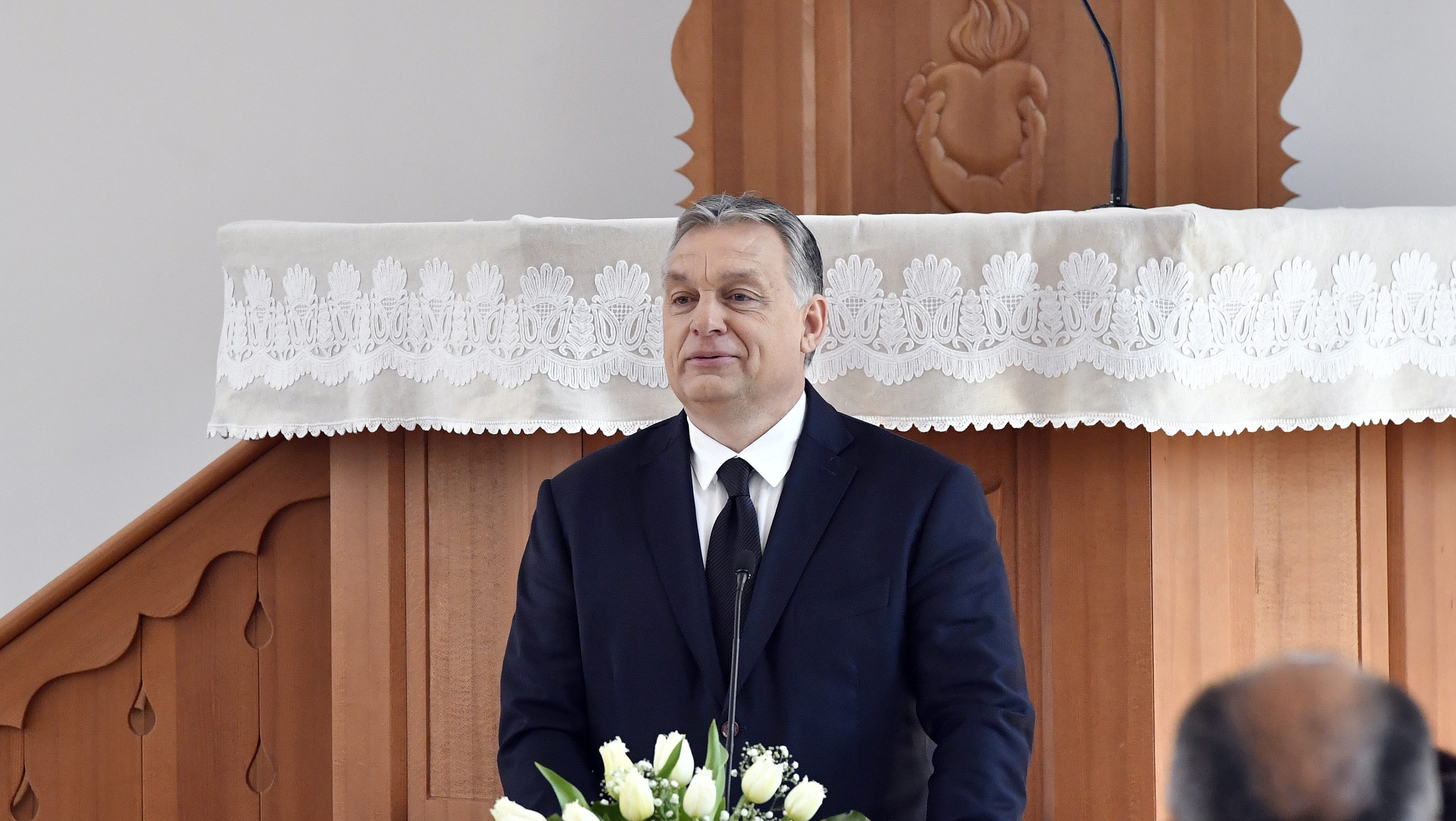
The Prime Minister said they are offering the Reformed Church an alliance also for cases when “they set out to plough as yet uncultivated land”.
Mr Orbán also mentioned that the Hungarians are to this day a church-building nation, something that “we can be rather proud of in the present church-destroying times”.
He said church and government are working together for the refurbishment of churches and the construction of new ones. During its 15 years in office, this government has funded the renovation of some 3,000 churches and the construction of another 130, including the refurbishment of 1,124 Reformed churches and the construction of 47 new ones, he said, stressing that it is the government’s duty to protect the built-up heritage and to support active congregations.

He also highlighted that it clearly testifies to the vitality of the Csömör Reformed Church congregation that within just a few years they erected a rectory and a congregation building, and later a church and a memorial symbolising the unity of the Hungarian people.
The Prime Minister described the name given to the church ‘sower’s house’ as telling because it relays the message that the last finishing touches performed on the building mark not the end of the work, but the beginning of a new path.
The sower’s example symbolises the fact that the church opens its houses of prayer, schools and care institutions not only to believers, but equally to those who have not yet embraced the blessing of Christian faith, the Prime Minister said.
Mr Orbán quoted the passage of the Fundamental Law which lays down that Christianity plays a role in preserving nationhood. The Hungarian people profess, he added, that Christianity is able to preserve the whole of Europe and the entire world.

“What we know today as European culture is the result of two thousand years of sowing seeds,” he stressed, highlighting that the Hungarian State itself grew out of these seeds in the Carpathian Basin a thousand years ago. At the same time, during Muslim occupation for a century and a half, “the gospel preached preserved and rescued the souls that kept Hungary Hungarian,” he added.
In his words, the harvest of the seeds sown by apostles, missionaries and reformers can be seen today in architecture, language, literature, the legal system, numerous works of art, and above all, in the lives of a great many families.
At the same time, we must also see from time to time that “weeds grow among the crops,” and we must likewise cope with the fact that “loud flocks of birds preaching fashionable ideologies appear over our crops, trying to snatch the teaching from people’s hearts if it is not embedded deep enough,” the Prime Minister said.
Therefore, being a Christian Hungarian, Mr Orbán continued, is love and struggle all at once. “Today this is also the credo of 21st century Christian democratic politics,” he stated.
Reformation Day cautions us that without the sowing of the seeds there is no harvest, and reminds us how much the Hungarians have been given by Christianity, the Prime Minister said, stressing finally that “we regard all this good not as kind pieces of the past to be cherished, but as the building blocks of Hungary’s future”.
Bence Tuzson, Fidesz Member of Parliament for the constituency said thank you to everyone who contributed to the construction of the church. A great many developments have been implemented in Csömör, but a church is something different because it is the house of God, the home of the soul and the creative force of the community, he added. He described the new Csömör Reformed Church as a symbol of belonging together as the mosaics of the vaulted ceiling make up the Carpathian Basin with the Hungarian community in it.

